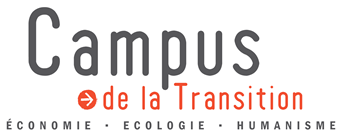Faced with limiting practices...
Faced with the scale of the environmental and social crises, education is faced with a delicate task: how to foster a real understanding of the issues at stake without discouraging or feeding a feeling of eco-anxiety?
A quantitative and factual approach to these problems is certainly important, but it is not enough to give individuals and groups the power to act. That is why the Campus de la Transition uses an original teaching approach that combines theory and practice, while supporting people as closely as possible to their own experience.
Our training courses are aimed at a wide range of learners: students in higher and secondary education, teachers, working professionals and/or those undergoing retraining, and anyone wishing to get involved.
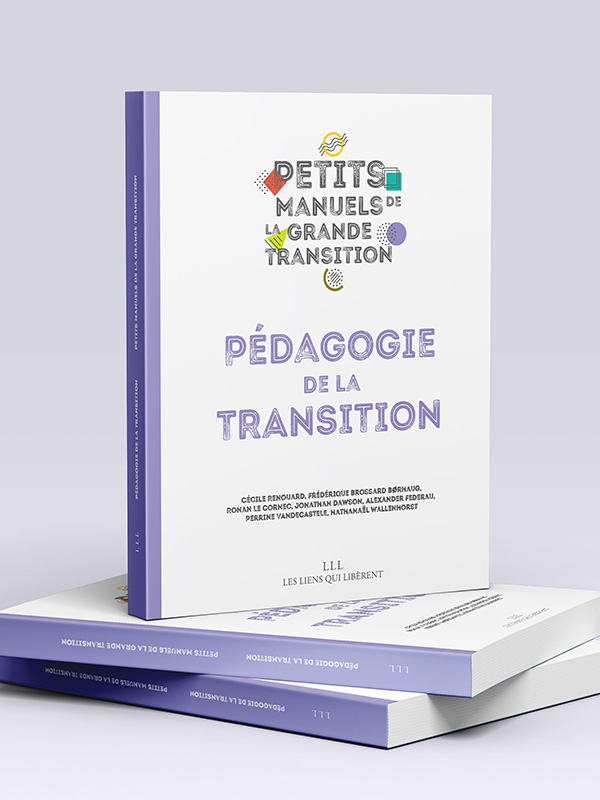
Transformative teaching methods
The aim of the Campus de la Transition is to equip citizens to take effective action. Our vision of pedagogy is therefore multi-faceted. Firstly, we are committed to the content of our courses. Our training courses bring together a range of theoretical knowledge relevant to transition issues, from emerging concepts to forgotten and/or underestimated knowledge. Likewise, we encourage dialogue between disciplines and place our courses at the interface between theory and practice, whether by disseminating the results of our action-research projects or by insisting on the concrete application of knowledge. Finally, the Campus de la Transition is committed to rethinking the teaching relationship. It does so by encouraging the expression of emotions, revaluing manual tasks and creating a horizontal relationship between teachers and learners.
The 4 pillars of our head-body-heart pedagogy
The 4 pillars of our head-body-heart pedagogy
This pedagogy aims to mobilize both reason and practical ethics, as well as practical wisdom, i.e. the relationship to oneself, to others and to the world. The aim is to build a relationship with oneself, with others and with one’s environment that fosters the emergence of “living and doing together”.
Integrative and holistic pedagogy
Our pedagogy takes into account all the dimensions of the individual: intellect, know-how and emotions. It mobilizes symbolic reason as much as logical-mathematical intelligence. With this systemic approach, the individual becomes aware of his or her learning and his or her link to the world, and can no longer remain indifferent or passive in the face of challenges.
Inter- and trans-disciplinary approach
Our interdisciplinary approach aims to decompartmentalize knowledge and know-how, and to promote debate and dialogue between the rationalities at work, cultures and worldviews. In order to grasp the complexity of the challenges at hand, we go further with a trans-disciplinary approach via action-research projects and the valorization of know-how and so-called “non-academic” knowledge.
Rooted and open pedagogy
This pedagogy aims to avoid sharing knowledge that is out of touch with realities. It takes root in a territory and in societal specificities, while remaining open to the world and the diversity of cultures. This includes dialogue with local players and intercultural dialogue.
Les 4 piliers de notre pédagogie Tête-Corps-Coeur
Pédagogie relationnelle et transformative
Cette pédagogie souhaite mobiliser à la fois la raison et l’éthique pratique, tout autant que la sagesse pratique, c’est-à-dire la relation à soi, aux autres et au monde. Il s’agit de construire une relation à soi, aux autres et à son environnement favorisant l’émergence d’un « vivre et faire ensemble ».
Pédagogie intégrative et holistique
Notre pédagogie permet de prendre en compte l’ensemble des dimensions de l’individu : son intellect, son savoir-faire et ses émotions. Elle mobilise la raison symbolique tout autant que l’intelligence logico-mathématique. Avec cette approche systémique, l’individu devient conscient de son apprentissage et de son lien au monde, et ne peut rester indifférent ou passif face aux enjeux.
Approche inter- et trans-disciplinaire
Notre approche interdisciplinaire vise à décloisonner les savoirs et les savoirs-faire, à valoriser le débat et le dialogue entre les rationalités à l’œuvre, les cultures et les visions du monde. Afin de saisir la complexité des défis, nous allons plus loin avec une approche transdisciplinaire via des projets de recherche-action et la valorisation de savoir-faire et de savoirs dits « non savants ».
Pédagogie enracinée et ouverte
Cette pédagogie souhaite limiter l’aspect « hors-sol » de la transmission des savoirs, en s’enracinant dans un territoire et dans des spécificités sociétales, tout en restant ouverte sur le monde et la diversité des cultures. Cela inclut le dialogue avec les acteurs du territoire et un dialogue interculturel.
Our training objectives
Understand the systemic dimension of Transition issues
Provide tools to take action
Les objectifs de nos formations
Comprendre la dimension systémique des enjeux de Transition.
S’outiller pour passer à l’action.
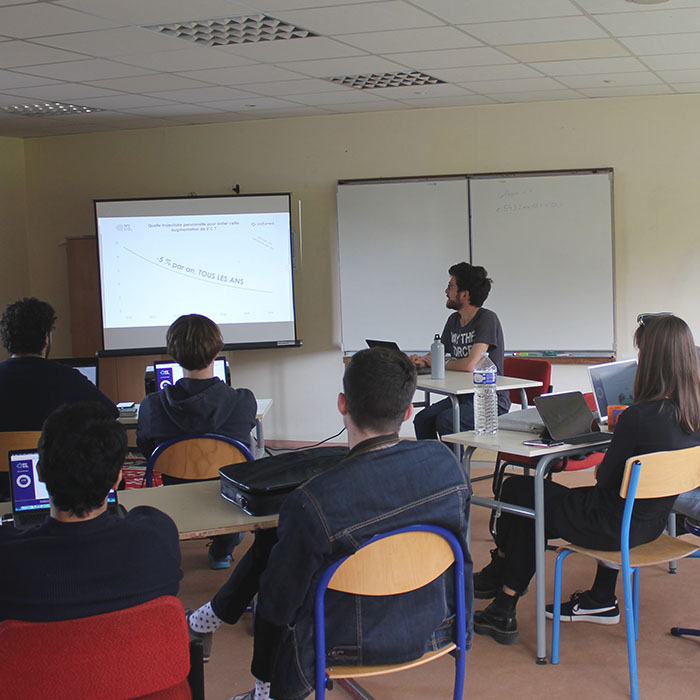
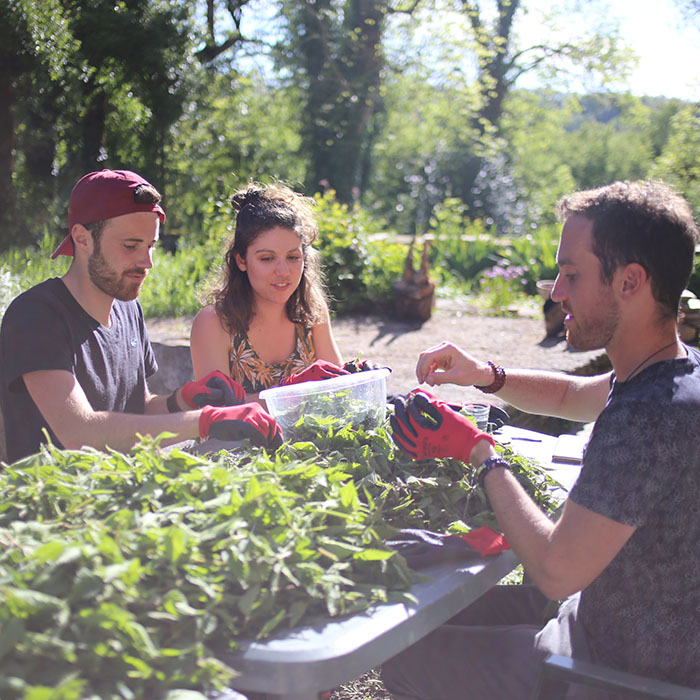
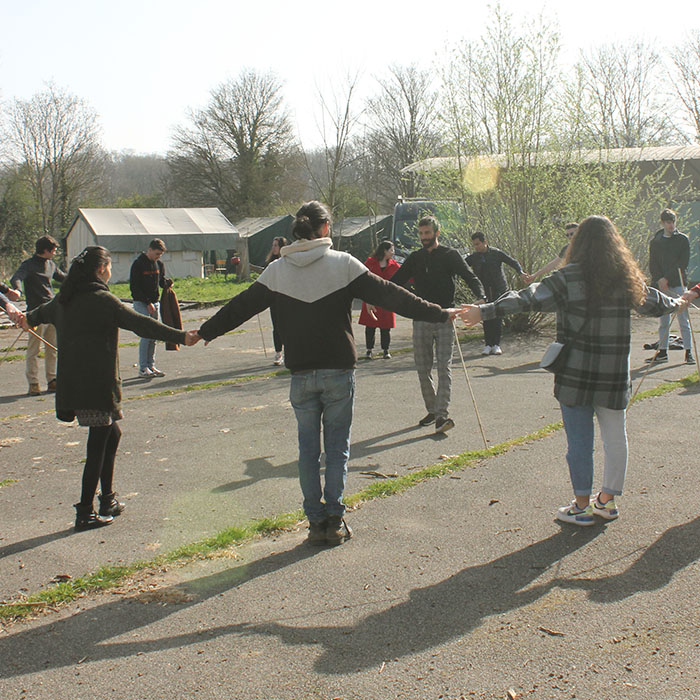
Anchoring & Embodying: a living-lab to learn about Transition
Anchored in the wooded estate of Forges in Seine-et-Marne, the Campus de la Transition offers a privileged setting for immersion and experimentation, enabling students to take the necessary step aside and reconnect with themselves, with others and with nature.
More than a traditional teaching program confined to the space of an amphitheater, the Campus de la Transition offers a holistic experience through its on-site training courses, enabling everyone to awaken and open up to the collective and systemic dimension of Transition.
Although it favors on-site teaching, the Campus also offers distance learning formats to enable everyone, especially those who are geographically remote, to learn about the ecological and social transition.
Students, professionals, teachers... Find the course that's right for you
For the students
Discover our academic training courses
For organizations
Discovers our customized training offer
For individuals
Discover our professionnal training courses
For teachers
Discover our customized training courses
